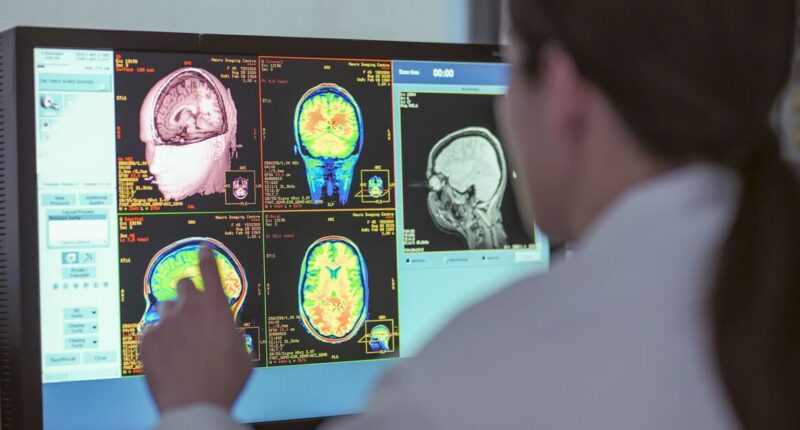Share this @internewscast.com
A combination of two cancer drugs may be able to reverse brain changes linked to Alzheimer’s disease, US research suggests. Experts who analysed the medical records of cancer patients found those taking certain drugs as part of their treatment were less likely to develop the condition.
When they tested the combination in mice, it reduced brain degeneration and improved their memory. Researcher Dr Marina Sirota, the interim director of the University of California — San Francisco’s Bakar Computational Health Sciences Institute, said: “We’re hopeful this can be swiftly translated into a real solution for millions of patients with Alzheimer’s.”
How did the study identify the cancer drugs?
Researchers used publicly available data from three Alzheimer’s studies to understand how the disease altered gene expression in single cells in the human brain.
They then looked for existing drugs, already approved for use in the US, which could cause the opposite changes to gene expression.
Of 1,300 drugs assessed, the team identified 11 that might reverse changes linked to Alzheimer’s, including 10 which had been approved for use in humans.
Study leader Dr Yaqiao Li, aformer UCSF graduate student in Dr Sirota’s lab, said: “Thanks to all these existing data sources, we went from 1,300 drugs, to 86, to 10, to just five.
“In particular, the rich data collected by all the UC health centers pointed us straight to the most promising drugs. It’s kind of like a mock clinical trial.”
The researchers then chose two cancer drugs from the top five candidates for laboratory testing.
What did the mouse testing show?
The two drugs selected were letrozole and irinotecan. Letrozole is usually used to treat breast cancer, while irinotecan is usually used to treat colon and lung cancer.
The combination was tested on mice which developed symptoms resembling Alzheimer’s as they aged.
Mice given a combination of the two drugs showed reduced formation of toxic clumps of proteins associated with the disease, reduced brain degeneration and restored memory.
Senior investigator Dr Yadong Huang, a professor of neurology and pathology at UCSF, said: “Alzheimer’s is likely the result of numerous alterations in many genes and proteins that, together, disrupt brain health.
“This makes it very challenging for drug development — which traditionally produces one drug for a single gene or protein that drives disease.
“It’s so exciting to see the validation of the computational data in a widely used Alzheimer’s mouse model.”
The findings were published in the journal Cell. Dr Sirota added: “Alzheimer’s disease comes with complex changes to the brain, which has made it tough to study and treat, but our computational tools opened up the possibility of tackling the complexity directly.
“We’re excited that our computational approach led us to a potential combination therapy for Alzheimer’s based on existing FDA-approved medications.”
















